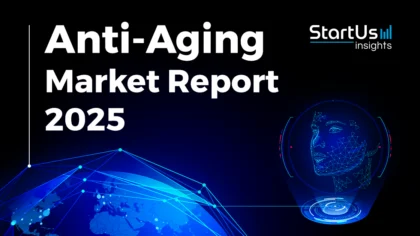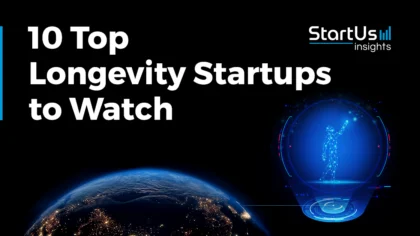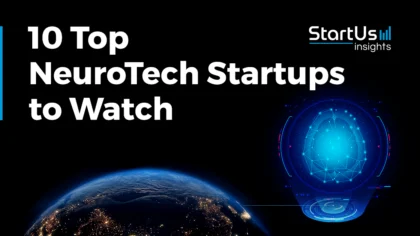Accelerate Productivity in 2025
Reignite Growth Despite the Global Slowdown
Healthcare is probably one of the most crucial sectors in any economy as it directly affects the life of every individual. It is also the most heavily regulated sector globally and for good reason. Non-compliant products and services could possibly put the health and lives of a large number of patients at risk. For this reason, historically, the healthcare industry has been slow to adopt innovations. However, the adoption of digital technologies by health-tech startups is accelerating change in the sector. Startups now leverage a wide array of technologies such as artificial intelligence (AI), additive manufacturing, robotics, big data analytics, augmented and virtual reality (AR/VR), and blockchain to name a few. These spur innovations in existing areas such as surgery and medical imaging, as well as enable completely novel use cases. Digital health and remote care are two such applications that are already very popular among healthcare practitioners and patients.
Top 5 Global Startup Hubs: Healthcare
Using our StartUs Insights Platform covering more than 1.116.000 startups and emerging companies, we analyzed the geographic distribution of global activity in the healthcare industry. We identified 68 regional hubs* that observe high activity in developing technology-driven solutions across the industry like advanced robotics, blockchain, and medical imaging software, to name a few.
Within these hubs, we analyzed a sample of 3.055 startups and emerging companies employing technology-driven solutions to innovate in the industry. Silicon Valley, New York City, London, Boston, and Los Angeles are home to 942 startups* and account for 31% of global healthcare activity. Let us have a look at some of the innovative solutions from these 5 top hubs.
Based on our analysis of a sample of 3.055 startups & emerging companies, we observe that North America is home to 57% of global activity in the healthcare sector. Several large healthcare hubs in the US are driven by the presence of top research institutes and hospitals and their research output is vital for new innovations.
European healthcare hubs in London, Tel Aviv, Paris, Amsterdam, and Berlin account for 28% of global activity. Emerging Asian healthcare hubs in India and Singapore lead the region’s activity in the sector.
1. Silicon Valley: 339 Startups
Healthy San Francisco, a health access program running since 2007, provides subsidized medical care to uninsured residents of San Francisco. As healthcare becomes more digital than ever before, a large number of health-tech startups in Silicon Valley now offer digital services such as digital therapeutics, remote care, and wearables.
Based out of Menlo Park, Subtle develops medical imaging software. SubtlePET uses deep learning algorithms to improve the image quality from faster, noisy positron emission tomography (PET) scans. It lowers the time patients need to be in the scanner and reduces discomfort, anxiety, and pain. The solution is easy to implement, compatible with any scanner, and enables hospitals to scan more patients per day on their existing machines.
2. New York City: 194 Startups
In 2019, the city announced a $100 million health insurance program to make healthcare accessible to uninsured residents and immigrants. The emerging tech scene in New York City, a strong academic environment, and massive healthcare infrastructure offer ideal conditions for the growth of health-tech startups. With the sum of investments second only to Silicon Valley, healthcare jobs in the city are bound to rise every year over the next decade.
Muru is a US-based startup that develops software for emergency medical services (EMS) professionals. The app allows medics to quickly access protocol information, perform drug calculations, and check the manufacturer’s recommendations. The solution is customizable to the medics; certification level, the equipment and medications available, and the patient, so that they focus on the patient, not the data, during an emergency.
3. London: 162 Startups
The UK has the highest per capita share of the top 1% highest cited life sciences publications. It also has one of the highest density of biotech and pharma companies outside of the US. The nationalized healthcare system and National Institute for Health and Care Excellence also support innovations in the sectors through programs like the Accelerated Access Collaborative (AAC). With London being a global hub for technologies like artificial intelligence, advanced analytics, and blockchain, health-tech startups in the area often incorporate these in their products and services.
London-based startup Medicalchain develops blockchain-based solutions for the healthcare industry. It offers secure storage and access to electronic health records on a decentralized ledger. Medicalchain uses blockchain, smart contracts, and cryptocurrency to provide an infrastructure for digital health applications and services that allow owners of the medical data to control access to their data.
4. Boston: 153 Startups
The state of Massachusetts has one of the best healthcare systems in the US. Boston, in particular, has long been a hotbed of research and innovation in medical and life sciences. The Longwood Medical Area in the city houses some of the top research institutes, including Harvard Medical School, and hospitals in the world. The high density of healthcare professionals and visiting patients make Boston an ideal place for healthcare startups to introduce their innovations in.
Activ Surgical is a Boston-based startup that offers solutions for autonomous robotic surgery. ActiveSight uses advanced computer vision to provide real-time intra-operative visual data and images that aren’t available to surgeons via existing technologies. The startup’s solutions are scalable, software-centric, and work seamlessly with existing hardware and visualization systems. Their autonomous soft tissue surgery is reported to outperform open, laparoscopic, and robot-assisted techniques.
5. Los Angeles: 94 Startups
It may come as a surprise to many, but healthcare employs more people in Los Angeles than entertainment. The city is home to top universities and medical schools that provide a highly-skilled workforce to the sector. In 2019, The University of California, Los Angeles (UCLA) launched the Biodesign Hub for Medical Technology and Digital Health Innovation. The increasing interest in healthier lifestyle choices is mirrored by the growth of digital wellness services in the area.
Los-Angeles based startup Zelegent develops medical solutions for sleep disorders. Elevoplasty® is a minimally-invasive, office-based therapeutic procedure for simple snoring. It lifts the soft palate without surgery and makes it softer and stiffer to reduce its vibration during sleep and the resulting snoring. The solution is a viable alternative for patients who are not comfortable wearing an oral appliance at night or undergoing invasive palate surgery.
What’s next?
Advances in life sciences research will offer novel therapies based on stem cells and gene editing technologies. Big data analytics will continue to grow as wearables and the Internet of Medical Things (IoMT) devices collect large amounts of patient data. This data will inform clinical trials and drug development in the pharma industry, as well as enable physicians to offer personalized healthcare. Digital health solutions will enable self-treatment, such as Virtual Reality-guided rehabilitation. Other than wearables, medical devices will continue to become smaller and affordable for use by patients to monitor chronic conditions.
*We define a hub as the regional geographic center of activity for this topic. It covers the center point with a radius of 100km. We define startups as those founded after 2015.








